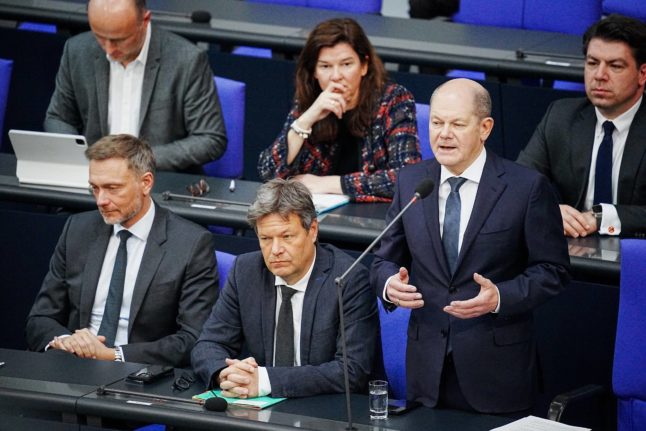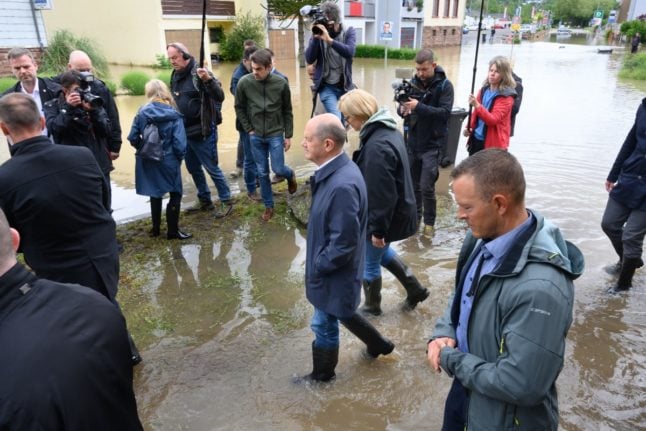The three parties in Germany’s ruling coalition — the Social Democrats, Greens and pro-business FDP — agreed the changes to emissions targets during marathon crisis talks that ended late Tuesday.
The new rules would allow missed targets in one sector, such as transport, to be compensated for by good performance in other sectors.
Christoph Heinrich, managing director of WWF Germany, called the move a “full-frontal attack” on existing climate policy.
Chancellor Olaf Scholz, who billed himself as the “climate chancellor” during his election campaign in 2021, had “abandoned his promise of progress”, Heinrich said.
The NGO Germanwatch also said the changes were “a step backwards”, accusing the government of creating “loopholes”.
Two weeks after an alarming report from the Intergovernmental Panel on Climate Change (IPCC), the Bund campaign group accused the coalition of losing “precious time in the fight against the climate crisis”.
Scholz defended the measures in parliament on Wednesday, saying they would enable climate policy “to be further developed with a view to achieving climate neutrality by 2045”.
READ ALSO: Germany lifts veto to make way for EU fossil fuel car ban
He also assured lawmakers the targets would be checked every two years to see if “adjustments” were necessary.
As well as the measures on emissions, the three coalition parties also agreed to invest in building new motorways.
They also abandoned proposals to impose a ban on new gas or oil heating systems from 2024, a pet project of Green party vice-chancellor Robert Habeck.
However, they did promise to invest in developing rail transport, financed by a toll for heavy goods vehicles.
But overall, the Tagesspiegel daily judged that the Greens had emerged as “the big losers” from the talks, which dragged on for two days after starting on Sunday.



 Please whitelist us to continue reading.
Please whitelist us to continue reading.
Member comments